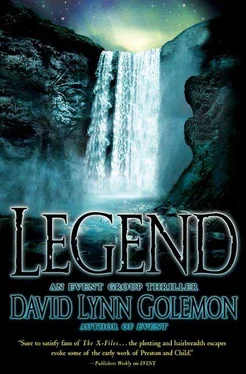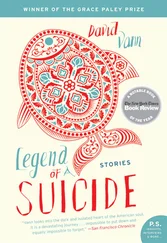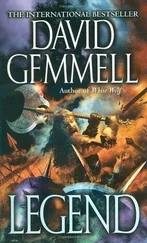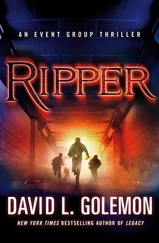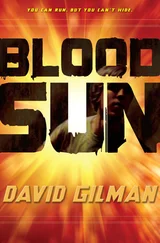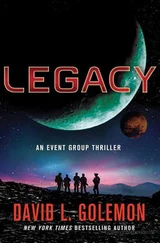They all nodded.
"Good, then welcome to the Little Bighorn. I'm Park Ranger McBride, and you're in for a treat if you've never been here before," he said proudly as he pulled a large ring of keys from his pocket.
McBride opened the door that guarded the past of Custer, his men, and the American Indians who had pulled off the biggest upset in the history of the American West, and they followed the ranger inside.
* * *
Another ranger was at the front gate saying good-bye and joking with a group of Northern Cheyenne protesters who were a part of the revitalized American Indian Movement (AIM), men the park ranger had come to know by name, as many were there every day in rotating fashion, just like clockwork, to let the public know their discontent on the current state of Indian affairs in Washington, which as always was nearly nonexistent and what little was there was very poor. The ranger laughed with them; he had grown very close with a few. About five of the AIM discontents were members of their separate tribal council police departments and wore their badges inside their coats. As the ranger started to swing the gate closed, he stopped when he saw two large Mercury SUVs coming down the paved road, nearly missing two of the Cheyenne as they drove past, drawing angry glares and a few curses. The ranger stopped with the gate partially opened and went out to greet the park-goers. He held up his hand as the first vehicle pulled up to the gate.
"Sorry, folks, we open again at eight in the morning," he said as he stepped up to the passenger window.
The window rolled down and the ranger was face to face with a man with a thick mustache. The ranger saw the silenced pistol as it was raised and aimed at approximately his right cheek. The rear door of the SUV swung open and he was quickly pulled inside. The ranger was knocked unconscious and stripped down to his underwear. A man of approximately the same size and weight quickly dressed in the ridiculous ranger uniform and then stepped from the SUV. He walked over and pulled open the gate, and the two vehicles entered the park, and then the man closed and secured the main gate with the keys that were still hanging from the lock. Then the imposter walked over to the ranger's truck and followed the first two vehicles as they went toward the visitor's center.
* * *
The strange scene at the front gate had not gone unnoticed. Fifteen Cheyenne Indians no more than three hundred yards away knew the park was closed to visitors at night. And they also knew that a place they held as sacred was filling up with white men once again, and that was bad news.
* * *
As the four visitors entered the exhibition hall, McBride turned on the fluorescent lighting and the museum came alive around them. There were magnificent representations of all the tribes that had taken part in the battle. Also mannequins dressed in uniforms of the Seventh Cavalry were there, and others were garbed authentically as Plains Indians. Behind glass enclosures were artifacts that had been recovered from the many sources they had eventually come to after June 25, 1876. There were horse bridles, several rusted and broken Springfield rifles, and Colt pistols. Bullets and balls of every caliber were on display, along with very old powder horns for old flintlocks used by some of the tribes. Broken lance points and arrowheads were well protected behind glass. There were reproductions of the Regimental flag, the blue and red swallowtail flag sporting Custer's personal choice of two crossed sabers. Jack perused these items and then turned to McBride.
"The artifacts we're interested in are the recent finds from the dig that was just concluded."
"Ah, I see, those are removed every day to the storeroom so work can be continued on them until noon every day; that was the price we had to pay to keep them on display. They're right back through here." He gestured to a door at the back of the museum.
"This is a going concern here; I didn't expect all this, to tell you the truth," Sarah said admiringly.
McBride stopped with keys in hand as he turned toward Sarah.
"We found out a long time ago that there is something that has lodged in the cumulative American psyche about the battle here, be it Indian or other cultures. It's hard to put a finger on because there have been so many far more devastating defeats on this continent for the American military," he said as he inserted the key into the lock and opened the door. "But for some reason the Little Bighorn haunts this country, maybe not because it was the last stand for Custer and his men, but maybe because, as it turned out, it was the last stand for the men and women he fought against. The tribes here may have won this battle, but it doomed them as a free-roaming people, thus in truth, destroying them. My personal belief is that Americans have always pulled for the underdog, and this place reminds them of what we did to these great people. Besides, all the men, no matter what side they fought on, in this place at least, had to have been the bravest there were at the time. You feel them here. You can even see them here when you're alone."
Sarah knew what the ranger was talking about. She knew they all did, from the moment they laid eyes on the fenced monuments on Last Stand Hill. This place was alive and they all felt it.
McBride turned on the overhead lights as he escorted the quartet into a room that had examination tables from one end to the other. The artifacts they had come to see were in varying positions on the tables, left as they were when the lab was closed for the day. Jack and the others took all this in with a feeling of awe.
"There you are, the latest field finds. Some amazing stuff, to be sure," McBride said.
Jack's eyes went immediately to the time-worn and — eaten saddlebag. The bottom was nearly rotted completely through as it lay under a circular magnifier-lamp. He walked over and snapped on the light, which lit up the lens, and then he pulled out a chair and sat.
"Hey, I said you're not supposed to touch anything!" McBride called out.
"Easy, chief, we're not here to harm anything," Mendenhall said as he grabbed the larger man's arm, restraining him. With his free hand he reached out and deftly removed the ranger's nine-millimeter handgun.
"What the hell is this?" McBride protested.
"I believe you were told there were national security issues involved," Mendenhall said.
"Really, we're not going to harm anything," Sarah chimed in, in an attempt to calm the ranger.
"Oh my," was all Dr. Nathan could muster, staring at the pistol that Mendenhall had removed from McBride's holster.
Jack was meanwhile engaged in looking through the magnifying glass. "Has anything been found in this saddlebag?" He looked across at the ranger, who was still in Mendenhall's arms.
"No, it hasn't even been examined yet."
Jack nodded and took a deep breath. He leaned over and examined the old leather pouch again. Taking a large pair of tweezers, he carefully lifted a small corner of the leather flap. It tore away and Jack cursed.
"You'll destroy it!" the ranger said angrily.
Nathan stepped forward and removed the tweezers from Jack's fingers.
"I think we can probably x-ray that, Major. That should show us the contents pretty clearly." Professor Nathan gently carried the saddlebag to the lab's X-ray area that was behind a screen.
"Just like a bull in a china shop," Sarah mumbled as she leaned over the table to examine the old steel box that had been recovered along with the saddlebag.
Jack shrugged his shoulders at Sarah's halfhearted reproach.
It took Nathan all of five minutes to get the shots of the saddlebag done. He reported, "The only items left in the saddlebags were more than likely organic in nature, perhaps field rations the Indians didn't find. Nothing even remotely resembling a cross, I'm afraid. There was no metal left on the leather at all; even the leather rivets had rusted away."
Читать дальше
